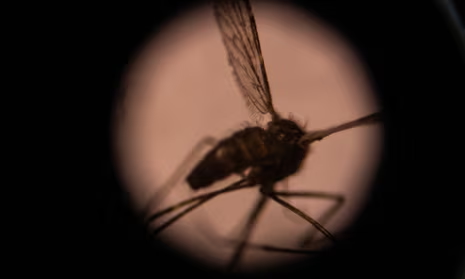
In a pivotal move to strengthen regional health security, stakeholders from across West Africa convened in Ouagadougou this week for a two-day workshop aimed at exploring innovative technologies in the fight against malaria transmission.
Organised under the auspices of the African Union Development Agency (AUDA-NEPAD), the session follows a similar gathering in The Gambia and focuses on French-speaking West African states alongside Ghana and Nigeria.
Opening the workshop on Monday, delegates from Benin, Burkina Faso, Ivory cost, Ghana, Mali, Niger, Nigeria, and Togo were welcomed by representatives from Burkina Faso’s Ministries of Research and Health.
The event seeks to deepen regional collaboration, regulatory alignment, and responsible deployment of next-generation vector control tools, particularly gene drive technology.
“Despite the considerable efforts made over several decades, current control tools are showing their limitations,” said Dr. Jonas Kologo, Technical Advisor representing the Minister of Higher Education, Research and Innovation.
“This includes resistance to insecticides, reduced efficacy of bed nets, and climate-related shifts in transmission patterns.”
The urgency of innovation was underscored by the 2024 World Malaria Report, which found that Africa remains disproportionately affected, accounting for over 90% of global cases and 50% of malaria-related deaths.
New vectors like Anopheles stephensi, growing insecticide resistance, and climate change were cited as compounding factors.
Dr. Kologo emphasized the importance of regional dialogue: “This cross-border dialogue represents a crucial opportunity to lay the foundations for a harmonized and coordinated approach between neighbouring countries.”
Dr. Adjima Combary, Chief of Staff at the Ministry of Health, highlighted ongoing national efforts, including free distribution of long-lasting insecticidal nets (LLINs), vaccination campaigns, vector control, and the promising “Target Malaria” project.
“It offers hope and promise for a future in which mosquitoes can no longer transmit malaria,” he said.
AUDA-NEPAD representative Dr. Johnson Wiltshire praised the workshop for fostering collaboration across borders: “It is essential to ensure that lessons are learned so we arrive at a truly conducive environment for research with safe regulations that reassure our populations.”
As Burkina Faso continues to spearhead research through the Institut de Recherche en Sciences de la Santé (IRSS), this regional initiative affirms a shared vision—one where science, ethics, and solidarity converge in pursuit of malaria eradication.



